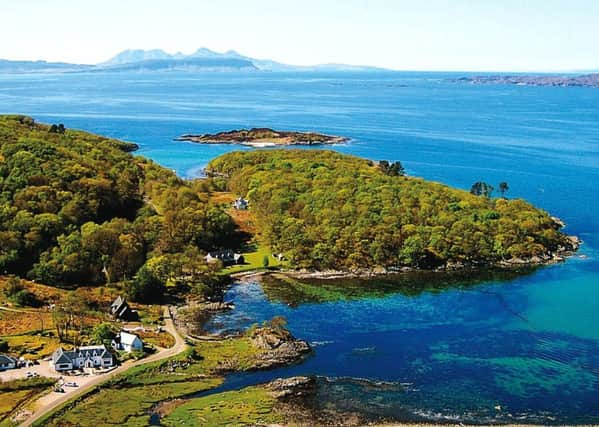Commercial property: Do green credentials add up for hotels?


Alistair Letham of Colliers says: “Obviously the main element that buyers will consider is the business argument for buying but properties which are extremely energy-efficient will obviously have lower energy bills and some with features such as solar panels will be able to earn income with the renewable heat incentive.
“For those looking for a well-run business, which has a good yield, then features which save energy and reduce outlays will be very attractive.”
Glenuig Inn has won many awards.
Advertisement
Hide AdAdvertisement
Hide AdLast month it won the Scottish Green Champions Award at the International Green Apple Awards, in recognition of its ability to operate year-round, highly efficiently and profitably with minimal environmental footprint.
It runs on 100 per cent renewable energy and has a zero food waste policy.
Any food waste is dried, sterilised and mingled with wood pellet to provide all the heating and hot water for guests and staff.
Steve Macfarlane, the director of Glenuig Inn, says: “As a 100 per cent renewable business, with lower energy costs in winter than summer, we believe strongly in doing the right thing across all aspects of the business, including minimising waste.
“We believe that a holistic approach to creating a sustainable business is the only way to achieve real success both for the bottom line and also the environment.”
In terms of selling, such measures will add value and desirability to the bricks and mortar.
Letham says: “As a renowned green destination, it will certainly appeal to other hoteliers and entrepreneurs interested in continuing this legacy, which makes sound business as well as environmental sense.”
There is a sense, even for a traditional enterprise such as Glenuig which started life as a drovers’ inn in the 18th century, that such environmentally-friendly measures will “future- proof” the business.
Advertisement
Hide AdAdvertisement
Hide AdCertainly, large international hotel chains are taking sustainability seriously, and drives are under way across the industry to reduce energy consumption both to improve profits and attract energy-conscious customers. This is more important for the larger hotels, as some corporations are starting to stipulate minimum environmental standards in hotels where their employees stay.
It is not yet true of smaller enterprises, but Letham says that the direction of travel of legislation means that greener commercial buildings are just staying ahead of the game.
There is also a growing interest from guests in a hotel’s green credentials so in terms of marketing and PR, there is added value, although it is, as yet, somewhat intangible.
In the case of Glenuig, its sustainability credentials, focus on the outdoor communities and a reputation for locally sourced food has helped make it a year-round destination, which has added value in a West Highland location.
The inn, priced at offers of around £895,000, has a bar, restaurant, lounge, six letting bedrooms, a bunkhouse and two staff flats.